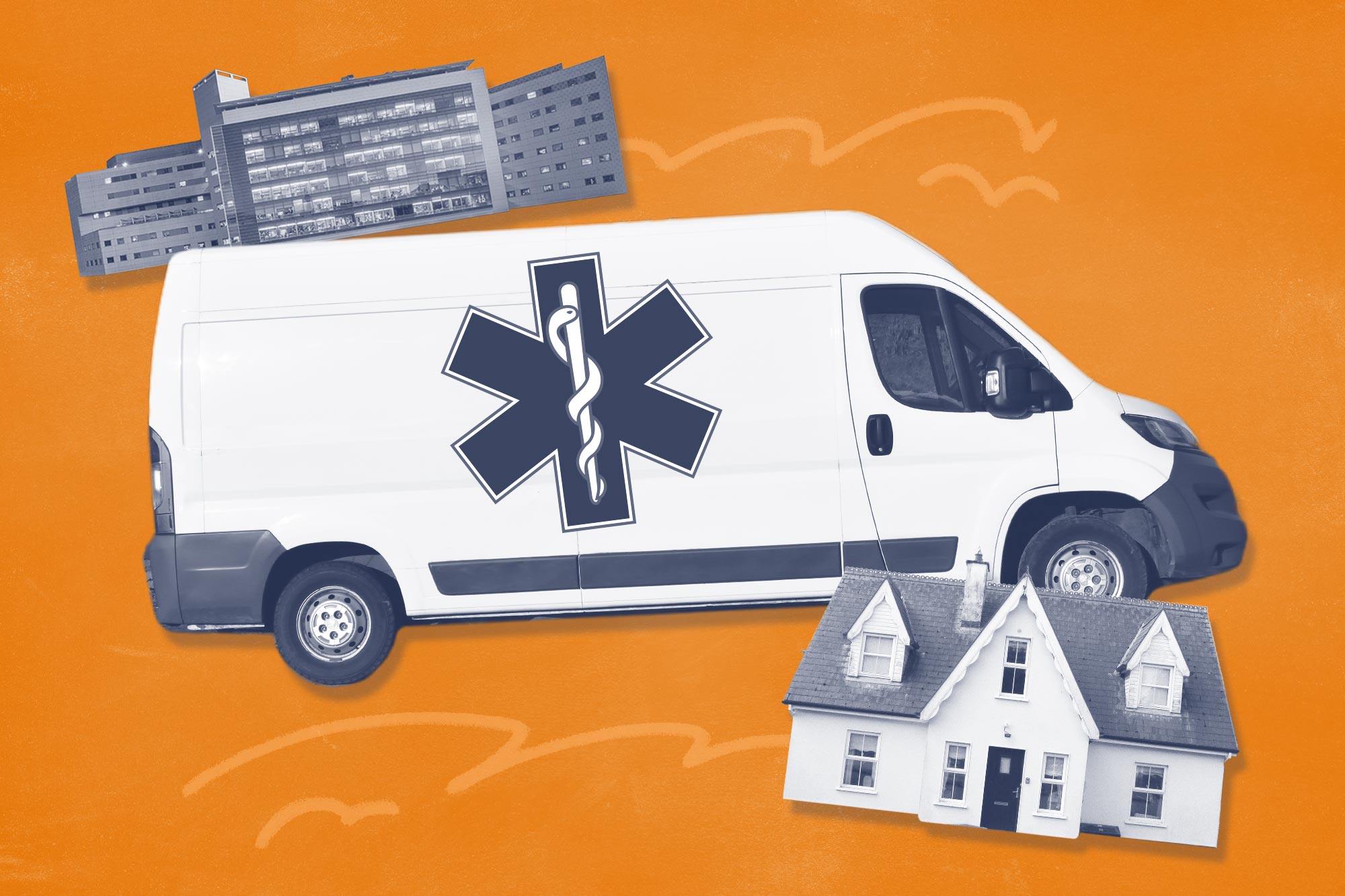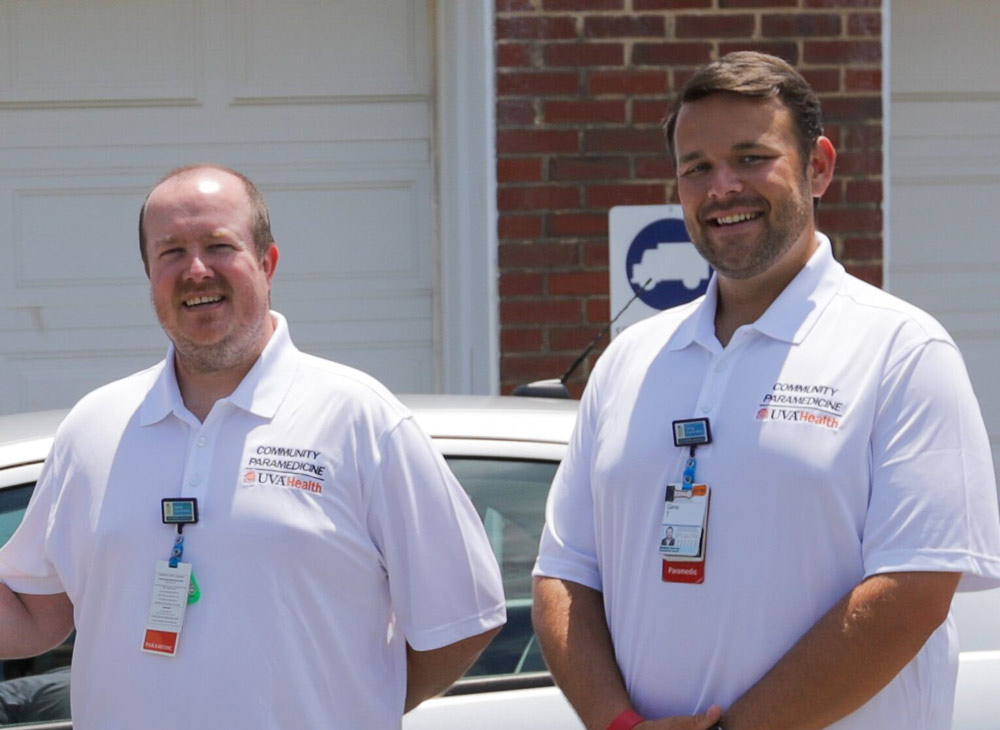The program is designed to help patients who frequently visit the Emergency Department for non-emergency reasons, including chronic conditions such as diabetes or high blood pressure. Patients can be referred to the program by Emergency Department care providers or by local rescue squads. About 20 to 25 patients are typically enrolled in the program at any given time, Watson said.
Patients who agree to participate in the program receive a home visit from UVA Health’s community paramedics, who also review the patient’s medical records to see what could be causing the repeated Emergency Department visits.
Emergency departments and rescue squads are set up to address patients’ immediate symptoms, “not the root of what’s causing the symptoms,” said Taylor Tereskerz, one of the community paramedics.
During the 30 to 60 days a patient usually spends in the program, the community paramedics work to address health-related factors in the patient’s life, including access to food and transportation to medical appointments. They also review medications and connect them with needed primary and specialty care providers.
Patients connect with UVA’s Interactive Home Monitoring program, which provides them with a tablet computer for telehealth visits and devices to monitor vital signs such as blood pressure, weight, heart rate, temperature, blood-sugar levels and oxygen levels. Patients also learn when to seek Emergency Department care, visit an urgent care center or contact their primary care provider.
If there is a “triggering event,” such as an Emergency Department visit or frequent calls to 911, UVA community paramedics will visit the patient and work to resolve any underlying issues. So far, UVA’s community paramedics have prevented 50 trips to the Emergency Department over the past year, which both aids patients and reduces Emergency Department wait times.
For Darla Rich, weekly visits from Watson and Tereskerz “have been a lifesaver” in helping her manage several serious health conditions, including chronic obstructive pulmonary disease, heart failure and atrial fibrillation, a heart rhythm disorder.
“It’s so nice to have someone with a pleasant smile come in to check on me,” Rich said.
During their visits, Watson and Tereskerz have done everything from checking her vital signs and providing education on how to best manage her conditions to patching her up after she suffered cuts from a fall. With their assistance, Rich has not visited the Emergency Department in about a year.
Beyond the medical help they’ve provided, Rich also deeply appreciates the care that Watson and Tereskerz have shown her.
“They stopped by one day to wish me a merry Christmas. That means a lot,” Rich said. “I just want everyone to know what wonderful people they are.”






